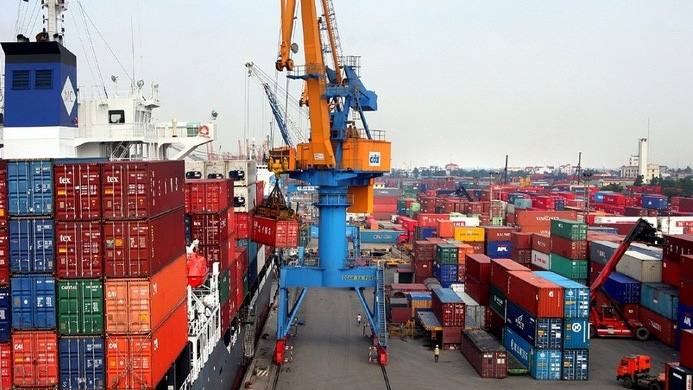
Vietnam’s trade gap for the first month of 2018 was estimated at US$300 million, according to the General Statistics Office (GSO).
|

Data released on January 29 showed exports rose by 33.1% to
US$19 billion in January, while imports surged by 47.4% to US$19.3 billion as
a result of greater demand for manufacturing input and consumer goods ahead
of the Lunar New Year.
The GSO said that domestic enterprises ran a deficit of US$2.4
billion while the foreign sector recorded a surplus of US$2.1 billion.
China was the largest buyer of Vietnamese goods at a value of
US$4.5 billion, 2.5 times higher than the same period in 2017, while
Vietnam’s exports to the US and the European Union were US$3.5 billion and
US$3 billion respectively.
The world’s second largest economy led the way as the largest
source of Vietnam’s imports at US$5.7 billion, up 45.6% on the previous year.
Imports from the Republic of Korea and ASEAN followed in second
and third places, at US$4.2 billion and US$2.6 billion respectively.
|
Source: NDO
According to data from the Hoa Binh Provincial Party Committee, the industrial production index for the first six months of 2025 is estimated to have increased by 20% compared to the same period last year. This marks the highest year-on-year growth rate for this period since 2020.
In the first six months of 2025, Hoa Binh province’s export turnover was estimated at 1.145 billion USD, marking an 18.11% increase compared to the same period in 2024. Import turnover was estimated at $ 804 million, a 17.15% increase, which helped the province maintain a positive trade balance.
The lives of the ethnic minority farmers in Tan Lac district have gradually improved thanks to the new directions in agricultural production. This is a testament to the collective strength fostered through the professional associations and groups implemented by various levels of the district’s Farmers’ Union.
With the motto the "product quality comes first,” after nearly one year of establishment and operation, Muong village’s Clean Food Agricultural and Commercial Cooperative, located in Cau Hamlet, Hung Son Commune (Kim Boi district), has launched reputable, high-quality agricultural products to the market that are well-received by consumers. The products such as Muong village’s pork sausage, salt-cured chicken, and salt-cured pork hocks have gradually carved out a place in the market and they are on the path to obtaining the OCOP certification.
In the past, the phrase "bumper harvest, rock-bottom prices" was a familiar refrain for Vietnamese farmers engaged in fragmented, small-scale agriculture. But today, a new spirit is emerging across rural areas of Hoa Binh province - one of collaboration, organisation, and collective economic models that provide a stable foundation for production.
Maintaining growing area codes and packing facility codes in accordance with regulations is a mandatory requirement for agricultural products to be eligible for export. Recently, the Department of Agriculture and Environment of Hoa Binh province has intensified technical supervision of designated farming areas and packing facilities to safeguard the "green passport" that enables its products to access international markets.


